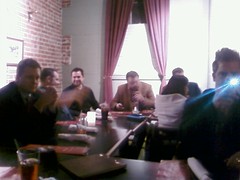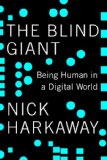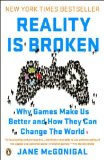 Contrasting yesterday’s post, I would like to discuss the realities of the corporation as I see them. I would first like to preface this that I am not an economist. I’m merely a slightly jaded Gen X (aka Slacker) with an MBA. I’ve owned my own businesses and have been, and currently am, an “employee” (although I wear that label very, very loosely).
Contrasting yesterday’s post, I would like to discuss the realities of the corporation as I see them. I would first like to preface this that I am not an economist. I’m merely a slightly jaded Gen X (aka Slacker) with an MBA. I’ve owned my own businesses and have been, and currently am, an “employee” (although I wear that label very, very loosely).
The fairytale Corporate America that I talked about yesterday operated in an American capitalist ecosystem. The “global market” didn’t really exist yet and technology had not enabled the rules of capitalism to play out world wide…yet.
Sometime during the ’80′s that changed. This is while most Gen Xers were just starting college or still in high school. First we watched this new discipline, “Information Technology” hold the promise of the corporate fountain of youth. Then we watched as Europe unified (kind of) under a common financial agreement. We watched Japan go through a major generational shift that enabled a younger more business savvy generation show us what capitalism was capable of. More recently we’ve watched China and India catch their own strain of capitalism - the full effects of this are still far from being fully realized.
During these titanic shifts corporations had a decision to make: Follow the rules of capitalism and take advantages of the wealth of lower cost resources - computer and human - or try to hang on to their fairy tale existences.
It is at that point that corporations realized that employees were just another resource on the spreadsheet. Once that happened “labor” fell under the same effects of capitalism that all resources are subject to. Companies began shifting those resources and a new wave of innovation swept through the country sweeping away the obsolete and propelling the prepared to new heights.
Today, thanks to the Internet and technology there are very few jobs in America that can’t be done somewhere else for nearly as good, just as good, or often times better by someone overseas or by a computer/machinery. And if you think your job is safe, wait and hold that fairytale close to your pillow at night.
There are only two American jobs that are safe in the future. Those done by a true specialized, expert or those that don’t exist yet.
This reality is not necessarily better (although many of us think it is) or worse (although many people do) it’s just different. But it’s the reality that we live in.
Because of these huge changes, everything that I mentioned in my previous post about work in the fairytale version of Corporate America is radically different.
Information flows through a company faster than it is capable of capturing it, and that which it can capture is so huge that we haven’t figured out how to digest it effectively yet. Large global companies are not capable of housing all of their employees in one location, and because all but a very few companies that don’t compete globally (I would argue there are none) most small businesses aren’t housed all in the same location.
A company is only as loyal to their employees as long as their position (not necessarily them) can add value to the organization, and likewise an employee is only as loyal to the company as long as it is providing the most value to them (although sadly not every employee grasps this yet).
Employees are mobile and transient. Most corporate jobs are now classified as “knowledge workers.” Knowledge workers do not learn their job their manager. They do not move up in the company. They usually move diagonally, or to another company to move up. I have heard many a manager confess that, in some companies, it is easier to move up within ones own company if they leave to another company and then come back years later. This is the employment equivalent of corporate parkour (see video).
With so much transient information, both in the form of people and data, the need for the collaboration and the simultaneous capture of knowledge is proving to be one of the last true competitive advantages companies have. With knowledge and collaboration comes innovation.
It is also important to note that something else happened during these huge shifts. People were turned into line items on a spreadsheet, you were either a customer or an employee and either way you represented a certain dollar amount. Once CEO’s took the faces away from the people they relied on, they became greedy and were able to rationalize all kinds of things (I believe a very similar thing happened with the government years before).
Corporations violated (and still do) the publics trust time and time again. Even the Media (which is just another group of corporations) fell victim to this greed.
People no longer trusted the Government
People no longer trusted Corporate America
People no longer trusted the Media.
What’s even more important beyone the loss of trust is that people no longer rely on these groups for the things they used to (the one arguable exception is the Government, but like I said, that’s arguable).
The solution to these problems lies in the, yet to be fully realized, power of Social Media. Moving forward I will use the metaphor of Capitalism to show how government agencies and politicians, companies and even local and national media outlets can use the tools and trends driving the social media revolution to earn back trust and gain substantial competitive advantages by better capturing knowledge and enabling innovation.
Technorati Tags: Social Media Trifecta,Corporate America,Media,Trust,Business,Globalization
This post is part of my ongoing effort to blog the book I’ve been working on for too long before the end of the year. These are all rough first drafts that have not been edited or even proofread. Comments and patients are requested. You can follow the whole series through the category “The Book“.







Pingback: How Much Does Trust Cost? - New Comm Biz - New media strategies for business
Pingback: Book writing progress report - New Comm Biz - New media strategies for business